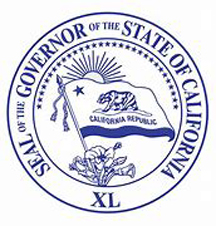
DALLAS, TX (TIP): Asian Indian or Indian American registered voters are overwhelmingly Democratic, with a whopping 70% of the community favoring Hillary Clinton, according to a new National Asian American Survey (NAAS). Donald Trump, in fact, falls into third place with only a meager 7% support for him, outstripped by support for ‘other candidate and leaners’ which shows at 9% support.
Asian Americans overwhelmingly Democrats, shows new survey
In line with that, Asian-American registered voters are increasingly identifying as Democrats, with a whopping 11 percentage points increase since 2012, over those in the community who are registered Republicans, according to the survey. Interestingly, Asian-Indian or Indian American community led both the 2012 and the 2016 polls with overwhelming support for Democrats. While in 2012 it was 68% Democratic, with only 10%shown as Republicans, in 2016, 71%registered voters are seen as Democrats vs. 13% as Republicans, for a net gain of one percent. The 2016 survey, released last week, also found that 59 percent of respondents favor Hillary Clinton in this year’s presidential election while only 16 percent prefer Donald Trump – 26 percent are either undecided or favor a third-party candidate, reported fivethirtyeight.com A whopping 79% Indian Americans view Trump unfavorably, with 67% viewing him very unfavorably, the survey found. The NAAS sampled 2,238 Asian-Americans and 305 Native Hawaiian and Pacific Islanders.
Polling Asian-Americans can be difficult, the report said. Asian-Americans have one of the highest rates of limitedEnglish proficiency, and about 3 in 4 are foreign-born. For these reasons, 45 percent of the interviews in the NAAS were conducted in one of nine languages other than English (Cantonese, Mandarin, Korean, Vietnamese, Tagalog, Japanese, Hindi, Hmong, Cambodian).
Indeed, “Asian-American” is a broad group that includes many different ethnicities with distinct political traditions. Vietnamese-Americans have historically leaned more Republican than other Asian-American subgroups, for example; Indian-Americans and Japanese-Americans have leaned more Democratic. Still, Democrats have made substantial gains across most ethnic subgroups of Asian-Americans, noted fivethirtyeight.com.
In the aftermath of the 2012 election, the Republican National Committee (RNC) released a report calling on the party to do a better job connecting with minority populations. The RNC hired a nationalfield director, Stephen Fong, and a national communications director, Jason Chung, to conduct outreach to Asian-American voters. Karthick Ramakrishnan, director of the NAAS, said in an interview that the GOP was “trying to project this image of the Republican Party that was more open, that is more tolerant, that is trying to do significant outreach to the community.”
Ramakrishnan said the GOP appeared to be making strides in some areas, pointing to the 2014 election of several Asian-American Republicans to seats in California‘s state legislature. But he said that the polarizing nature of this year’s GOP presidential nominee seems to be nullifying any gains Republicans might have made and that support among Asian-Americans for the GOP may be lower now than in 2012.
In previous years, Ramakrishnan said, surveys of Asian-Americans showed larger differences in political preferences between subgroups and between regions of the country. “One way you could put it is that Trump is nationalizing the election for Asian-Americans,” he said.
Trump’s effect on the concerns of Asian-Americans may be evident in an open-ended NAAS question that asks respondents to name the “most important problem facing the United States.” Ten percent of registered voters in the NAAS said “racism or racial discrimination,” the third-most-common answer, behind the economy and national security. Trump has been criticized for anti-immigrant and racist rhetoric, including saying that Mexican immigrants are rapists, and for proposing to temporarily ban Muslims from entering the country.





Be the first to comment